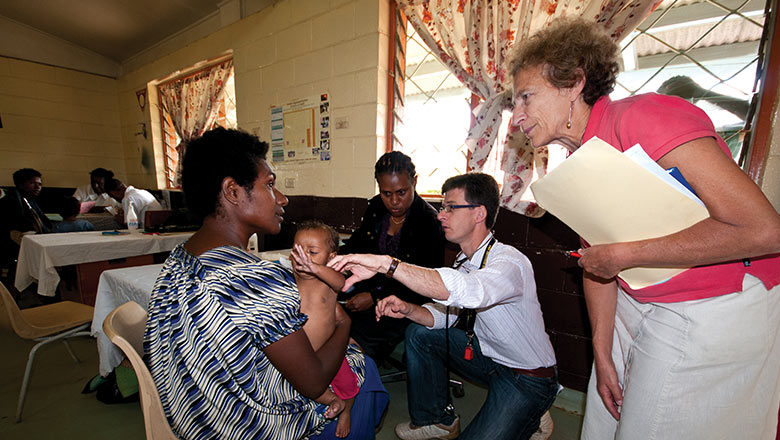Search
News & Events
Trans Tasman action to fast track rheumatic fever vaccinePrime Ministers of Australia and New Zealand have agreed to provide $3M to help fast-track the development of a vaccine against rheumatic fever.
News & Events
State Immunisation Strategy ReleasedThe State Government has launched a new strategy for improving immunisation rates among WA children, to prevent outbreaks of diseases like measles & meningitis
News & Events
New study examines vacccine to prevent cervical cancerThe Telethon Institute for Child Health Research today announced a new study investigating a vaccine to prevent infection of Human Papilloma Virus (HPV).

Research
Paediatric Active Enhanced Diseases Surveillance (PAEDS)PAEDS monitors for key vaccine preventable conditions and severe side effects from vaccine in 5 paediatric hospitals in Australia.

News & Events
Collaborating to prevent killer diseases in PNGFor more than a decade, The Kids Research Institute Australia and Papua New Guinea Institute of Medical Research have been fighting against killer infectious diseases.

News & Events
Immunisation advice before, during and after pregnancyAre you pregnant or planning to have a baby? There are important vaccinations that you should consider to protect your health and the health of your baby.
Research
FluCAN - The Influenza Complications Alert NetworkThe main aim of the study is to provide timely surveillance data to public health authorities on severe influenza.

News & Events
Researchers share their expertise with the community in CockburnResearchers from the Wesfarmers Centre of Vaccines and Infectious Diseases at The Kids Research Institute Australia have shared their expertise with the community in Cockburn, covering topics ranging from respiratory disease in babies to recurring ear infections in kids.

News & Events
Warm Welcome for the Neonatal Infection and Immunity TeamClinical Professor Tobias Strunk, Dr Andrew Currie and their Neonatal Infection and Immunity Team have become the newest members of the Wesfarmers Centre of Vaccines and Infectious Diseases.

News & Events
The good oil on immunisationAs a new parent or parent-to-be, you will be faced with many important decisions about your health and the health of your child, including immunisation.
